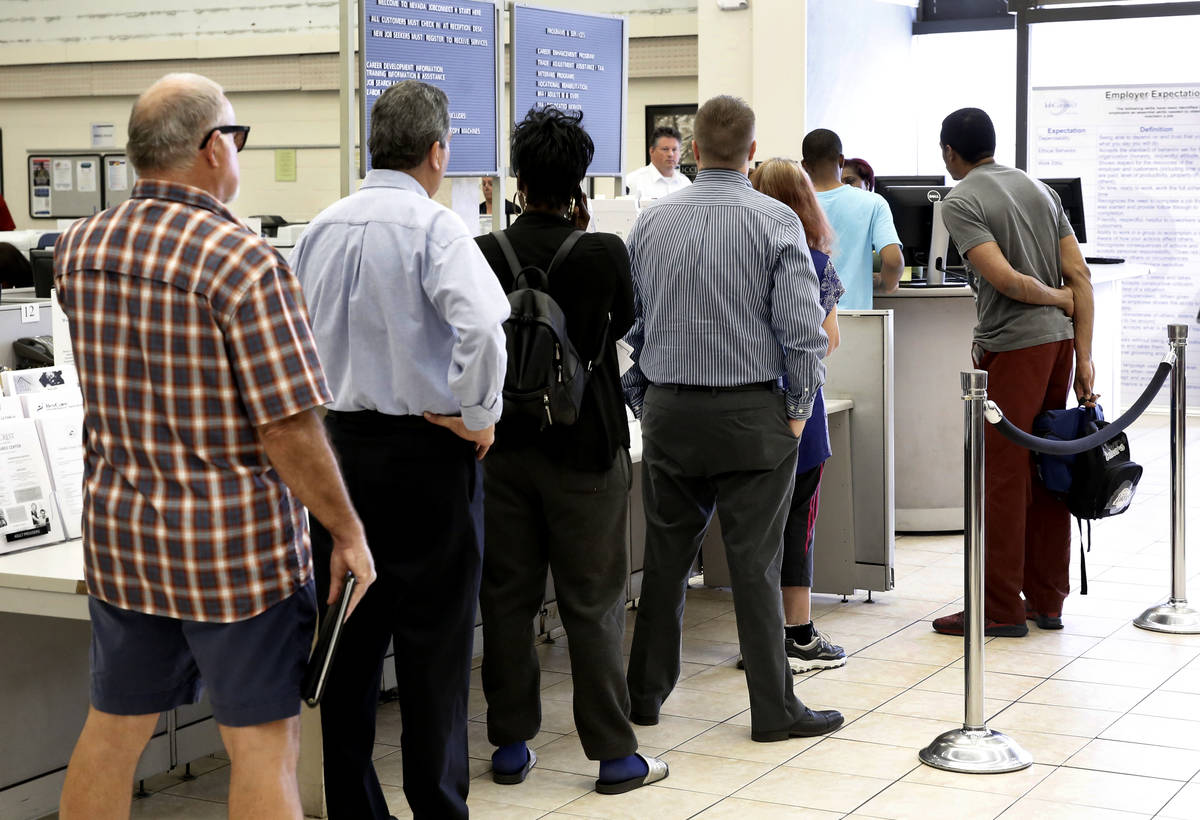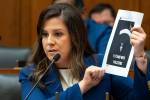MEGAN McARDLE: No stimulus makes no sense
If you write about personal finance, you learn that there are some people who react to financial trouble by actively making it worse. Having gotten themselves into a precarious-but-fixable financial position, they just give up on fixing it and instead figure they might as well enjoy some new clothes or nice dinners out before the inevitable denouement.
I worry that I myself may fall into this trap when I consider negotiations over the next COVID-19 relief package — which President Donald Trump announced he was walking away from at one point because the two sides were $800 billion apart.
$800 billion! That is enough to buy the entire output of General Motors — for six years straight. It could have bailed out WeWork nearly 100 times over. It is roughly equal to the state budgets of California, New York, Florida, Texas, Pennsylvania and Illinois combined.
It is, in short, a lot of damn money.
But the economy is already so bad due to the coronavirus, and we have already borrowed so much extra cash to tide ourselves over this pandemic, that I find myself wondering, why break off negotiations over such a trivial difference? And then I find myself wondering, are you crazy?
In fact, however, there are good reasons for even a deficit hawk such as myself to support aggressive stimulus. Not every single thing that the Democrats were asking for, of course; for example, Republicans are quite right to resist when Democrats attempt to divert desperately needed stimulus funds to the richest taxpayers in the wealthiest states — which is what lifting the cap on the deductibility of state and local income taxes would do. But Republicans should be focused on delivering substantial pandemic relief. And if they’re politically wise, they’ll push it through before the election.
Economically, relief is needed because unemployment remains at nearly 8 percent, and earlier rounds of government emergency spending have run out. Temporary layoffs are becoming permanent as airplanes are mothballed, Disney announces massive layoffs and theater chain Regal closes its theaters for the duration. Permanent job losses have a much deeper impact on economic growth.
Moreover, many of the ordinary worries one might have about spending too much on relief simply don’t apply here. In a normal recession, it’s reasonable to worry that injecting too much government money into the economy will distort incentives and market signals and ultimately prolongs the economic agony by encouraging people to sit at home waiting for a job exactly like the one they lost, rather than seeking work in a new field. But that’s not really the story of unemployment in a pandemic.
Some people are forced to stay home because it’s too risky for them to go to work. Others have to stay home to care for children who would normally be in school. And many are simply victims of collapsing demand, as entire industries — notably hospitality and travel — have lost most of their customers overnight. This isn’t their fault, and it’s not as if we want or expect them to do something different.
The same applies to relief on the business side. There’s less reason to worry that we’ll encourage more bad behavior if we bail out those businesses because they didn’t do anything wrong, other than happen to be selling a good or a service that isn’t much use while people are distancing. Nor should we worry that we’re keeping the economy from adjusting to a new normal, since this “normal” is temporary — with a few possible exceptions — and in most cases a vaccine should restore demand back to what it was.
Of course, we do have to consider that any money we borrow now will be paid for later. But America’s borrowing costs are low, and we have decades to pay back the cost of a once-in-a-century emergency. That’s a lot better reason to grow the deficit than an unfunded tax cut.
So the economics argue in favor of more relief. But even if they didn’t, the politics would be clear: If Republicans wanted to win in November, they should have passed a stimulus package months ago. Having failed to do so, the second-best time is now. And certainly, the last thing you want to do is announce that you are taking your ball and going home.
Which makes me wonder if it isn’t Trump, rather than me, who is leaning into catastrophe here. He has been trailing Joe Biden this whole race, and polls suggest that the past few weeks have been particularly disastrous for him, between his unimpressive debate performance and his handling of his COVID-19 diagnosis. He has little remaining time for a turnaround.
And so perhaps he’s decided to stop trying, and instead prefers to spend the few short months left to him in restful inaction. After all, even if this brings Americans and their economy to the breaking point, he won’t have to pick up the pieces.
Follow Megan McArdle on Twitter, @asymmetricinfo.





























